The PlaCe-ITN fellows are a dynamic group of Early-Stage Researchers from around the world (Cyprus, France, Greece, Italy, Spain, the UK, the US, and Russia) working on premodern plasters and ceramics from the eastern Mediterranean. At this site, you will find information about our fellows' academic profiles and their doctoral research within the framework of PlaCe-ITN.
ESR01 - Chase Minos
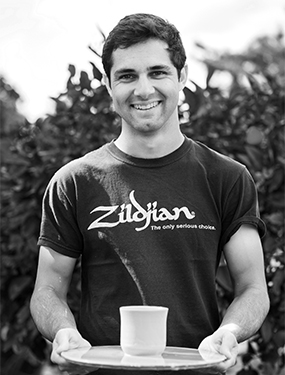
Research topic: Raw materials in the production of ancient Cypriot ceramics. Sampling the Cypriot geo-environment
The aim of the project is to investigate different technological aspects of pottery production during the Late Bronze Age in Cyprus, focusing primarily on the everyday, utilitarian shapes, such as plain tablewares and cooking pots from various sites on the island. This is essentially a technological investigation into raw material selection and processing at regional and inter-regional levels, for understanding the impact of the environment and of the evolving potting technologies in ceramic composition. Crucially, it is also at this time that a new technology was introduced to Cyprus, the potter’s wheel. The project then will be interdisciplinary and include a morphological study of site ceramic assemblages that will be combined with the technological and compositional study of ceramic samples, the acquisition and comparative study of geological samples from the broader regions under investigation. It will also involve experimental archaeology, for the replication and testing of technological observations made on archaeological ceramics. Ultimately, it is anticipated that this study will provide an insight into the evolution of ceramic technology during the crucial period of the Late Bronze Age, a period of significant socio-economic, political, and technological transformations.
Chase's work so far has, therefore, consisted of reading excavation reports and catalogues of pottery from various Late Cypriot settlements, tombs and production sites and has also started to familiarize himself with the geology of Cyprus. Chase has also resumed his training with a local potter in Nicosia, in order to prepare for future experiments that will be planned for the project. While working at the CAARI library for the initial phase of literature review, the next step is to study site assemblages which are imperative for the definition of research questions and for designing a rigorous sampling strategy. The aim is to acquire of representative samples from synchronous, comparative contexts from each site under study, before moving to the analytical part of his research that will include a compositional and technological characterisation of the selected samples, a comparative study between the samples with clay-rich sediment samples, as well as experimental reproductions based on archaeological observations.
Host organisation: The Cyprus Institute - PhD enrolment: The Cyprus Institute
Curriculum Vitae E-mail: This email address is being protected from spambots. You need JavaScript enabled to view it. Profiles: Academia
ESR02 - Ilia Kovalev
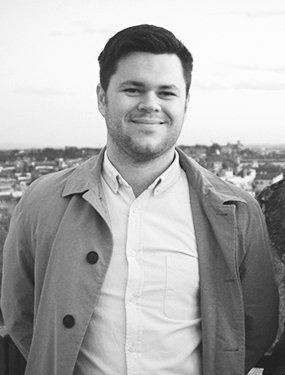
Research topic: Reconstructing the chaîne opératoire of technical ceramics for the production of Egyptian blue from the Late Bronze Age to the Roman era
The project aims to investigate the chaîne opératoire of Egyptian blue production, with the main focus on technical pottery involved in the process. Egyptian blue is considered one of the first artificial inorganic pigments produced by mankind. The earliest indications of its use are traced to the early fourth millennium BC and it became widely used since the Late Bronze Age. Egyptian blue is a common feature of the Egyptian, Mesopotamian, Greek and Roman artistic palette. Although the physical and chemical properties of the pigment itself have been addressed before, some stages of its production remain poorly understood. The ESR02 project will contribute to that field, by investigating raw materials selection, firing conditions and the design and use of technical pottery in Egyptian blue production. A set of archaeometric techniques will be used, including OM, XRD, XRF and SEM-EDS. Archaeological materials from different contexts will be analyzed on site and in the lab to understand how the availability of raw materials and the level of technical knowledge affected the way the pigment was produced.
So far Ilia has been reviewing the literature on Egyptian blue production, with the main focus on production centres and case studies of lab recreation of the pigment. Ilia has been consulting with Dr Henning Franzmeier, the director of the Qantir-Pi-Ramesse-Project in order to select artefacts for on-site and laboratory analysis. He also has been creating a database of already available objects from Qantir and Memphis. In addition, as a PhD student, Ilia participates in seminars and lectures organized by the Graduate School of The Cyprus Institute.
Host organisation: The Cyprus Institute - PhD enrolment: The Cyprus Institute
Curriculum Vitae E-mail: This email address is being protected from spambots. You need JavaScript enabled to view it. Profiles: Academia
ESR03 - Short-term fellowships* for doctoral students working on premodern ceramics and plasters
ESR03.A - Maria Hadjigavriel
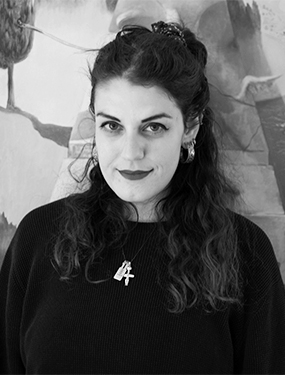
Maria is a PhD candidate and Teaching Assistant at the Faculty of Archaeology at Leiden University, under the supervision of Dr. Bleda Düring and Professor Peter Akkermans. Maria’s research concerns primarily the Archaeology of Cyprus in Prehistory, specifically the Late Chalcolithic and the Early Bronze Age, with a focus on pottery technology and interactions with Anatolia. Specifically, her focus is on the development of pottery technologies during that time and what they can tell us about inter- and intra-island interactions. Maria is also involved in the Palloures Archaeological Project as a ceramics specialist (www.palloures.eu).
During her fellowship at STARC, Maria will be employing ceramic petrography and SEM analyses to study Late Chalcolithic (hereafter LChal) pottery from four sites across Cyprus, namely: Chlorakas-Palloures, Kissonerga-Mosphilia, Ambelikou-AgiosGeorghios and Politiko-Kokkinorotsos. The main aims of the project are to investigate the compositional and technological characterization of the dominant red and/or black pottery types selected; intra- and inter- site technological and compositional comparisons and Late Chalcolithic pottery technologies; and their degree of variability at a local, regional, and inter-regional level.
Host organisation: The Cyprus Institute - PhD enrolment: Leiden University
Curriculum Vitae E-mail: This email address is being protected from spambots. You need JavaScript enabled to view it. Profiles: Leiden University - Academia
ESR03.B - Salama Kassem
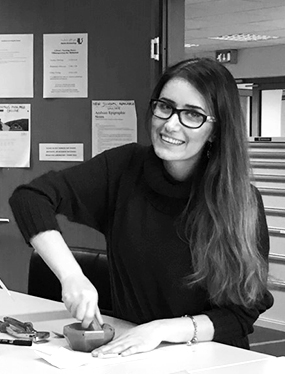
Research topic: Social and Economic Networks in Late Medieval Rural, Southern Greater Syria: An Archaeometrical Study of Mamluk Pottery (13th -16th CE)
Salama is a Ph.D. candidate at the Bonn International Graduate School – Oriental and Asian Studies (BIGS-OAS), Islamic Archaeology Research Unit, University of Bonn. Under Supervision: Prof. Dr. Bethany J. Walker
Salama is currently working on Social and Economic Networks in Late Medieval Rural, Southern Greater Syria. In her thesis, is concerned specifically with the social and economic relationships among small communities in the Trans-Jordanian countryside in the late medieval era. The technical study of pottery, its glazes, clay, and paint will provide a window into these relations. Ultimately, the main aim of this study is to document the social and economic fabric of the region through the ceramic assemblages of a number of archaeological sites. This is crucial for our understanding of the overall glazed and unglazed pottery industry during the Mamluk period, especially in terms of the differences between urban and rural areas. Salama is motivated by the prospect of applying the latest scientific techniques to the material culture designated by her project to uncover many aspects of social human behaviour in the late medieval period, undetected in the historical sources.
Salama has been part of the CyI team since 1st of February 2023 as a Research Assistant in the STARC, for her fellowship within the PlaCe-ITN project and her main aims during this fellowship are to prepare thin sections of her samples and to carry out petrographic and SEM analyses.
Host organisation: The Cyprus Institute - PhD enrolment: University of Bonn
Curicculum Vitae E-mail: This email address is being protected from spambots. You need JavaScript enabled to view it. Profiles: Academia - LinkedIn
ESR03.C - Anastasia Thamnopoulou
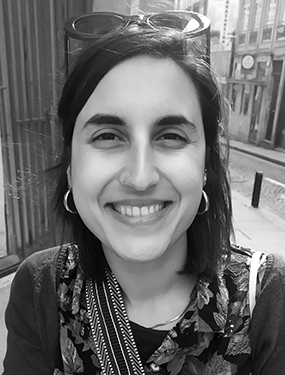
Research topic: The sanjak of Tirhala; tracing and defining the local ceramic production of Ottoman Thessaly (15th-19th ce.)
Anastasia completed her Bachelor in Archaeology and Art History in Aristotle University of Thessaloniki in 2016 and continued gaining her Masters at the University of Bonn, Germany. Her Master thesis is focused on tobacco consumption and trading in Ottoman Palestine, as it was witnessed through the surviving smoking pipes from the region. Her research continued with joining a PhD program in 2021 at the Bonn Institute for Graduate Students - Oriental and Asian Studies (BIGS-OAS). Her doctoral thesis aims in taking a step towards the reconstruction of the Ottoman past ofthe region of modern day Thessaly, Greece through the study of the material remains. Ceramic assemblages dating between the 15th and 19th centuries will be used in investigating interrelationships and connections, as well as identity shaping and daily life in a more ‘’bottom-up’’ approach of the local populations, as reflected in the local ceramic production. From February till July 2023, she will be joining The Cyprus Institute as part of a short fellowship program at the STARC.
Host organisation: The Cyprus Institute - PhD enrolment: BIGS-OAS, University of Bonn
Curicculum Vitae E-mail: This email address is being protected from spambots. You need JavaScript enabled to view it. Profiles: Academia - LinkedIn
ESR03.D - Cheyenne Peverelli
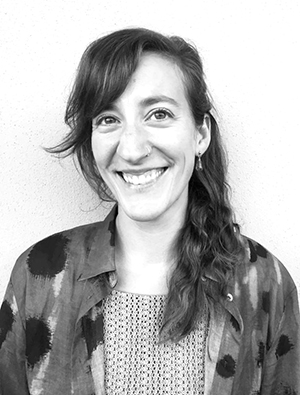
Research topic: A Cypriot kingdom in transition. Understanding the political landscape of Paphos between the late Classical and early Hellenistic period from the earth.
Cheyenne is a PhD candidate and Assistant at the Faculty of Classical Archaeology at the University of Basel, under the supervision of Prof. Martin A. Guggisberg (University of Basel), Dr Sabine Fourrier (HiSoMa-MOM) and Prof. Gunnar Lehmann (Ben Gurion University of the Negev). Her research concerns primarily the archaeology of the Paphian kingdom during the transition between the Cypro-Classical and Early Hellenistic periods (hereafter CC and EHell). In her thesis she mainly focuses on local pottery production, its evolution and interrelations with the Greek world and the Levante. The project aims to study continuities and innovations occurring between the end of the Iron Age and the beginning of the Hellenistic period, a transitional time characterised by major political changes and so far, rather understudied from the point of view of the material culture. Cheyenne is also member of the Mission archéologique française de Kition (dir. Dr Sabine Fourrier and Dr Pauline Maillard) and the Swiss German Excavations at Palaepaphos (dir. Dr Marie-Louise von Wartburg).
During her fellowship at STARC, Cheyenne will be employing ceramic petrography, SEM and hhXRF analyses to study fine ware pottery productions from the two wells TE I and TE VII from Palaepaphos-Evreti, respectively dated to the Late CC and EHell periods. The aim of this pilot project is to investigate the compositional and technological characterization of different wares (Plain Ware, Red Slip, Colour Coated Ware, Black Slip and Black Gloss) and to compare them. A focus will be set on the investigation of the characteristic composition and technology defining Red Slip and Colour Coated Ware, in order to point out differences and identify these pottery productions from a chronological point of view.
Host organisation: The Cyprus Institute - PhD enrolment: University of Basel
Curicculum Vitae E-mail: This email address is being protected from spambots. You need JavaScript enabled to view it. Profiles: Academia
ESR03.E - Alice Clinch
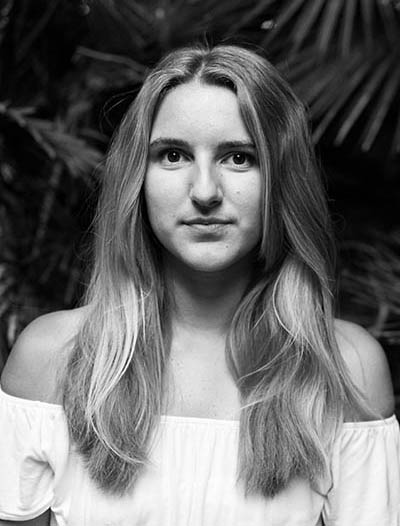
Research Topic:
Alice is a PhD candidate in the departments of History of Art and Visual Studies and the Institute of Archaeology and Material Studies at Cornell University. Her doctoral research focuses on the use of pigments and plaster technology from domestic contexts in the Classical – Hellenistic periods, focusing on three sites: Olynthos, Stymphalos and Naxos in Sicily. The project employs a multi-analytical approach to chart regional trends and variations in the materials used and methods of production for painted plaster.While at STARC, Alice will be employing SEM and XRF to study the composition of fifth century BCE painted plasters from Sicilian Naxos. As the earliest Greek colony in Sicily, the material offers an opportunity to study the interaction of eastern and western Mediterranean communities through their craft and technology. She will apply the skills learned at STARC to her material in Greece, where she was previously conducting analyses at the Fitch Laboratory of the British School at Athens (optical microscopy, WD-XRF) and the Wiener Laboratory for Archaeological Science of the American School of Classical Studies at Athens (pXRF, XRD). In addition to her doctoral research, Alice is active on a number of field projects across Greece, Italy and Sicily as the specialist in pigments and painted architecture.
Host organisation: The Cyprus Institute - PhD enrolment: Cornell University
Curicculum Vitae E-mail: This email address is being protected from spambots. You need JavaScript enabled to view it. Profiles: N/A
ESR03.F - Marie Louise Jahn Hansen
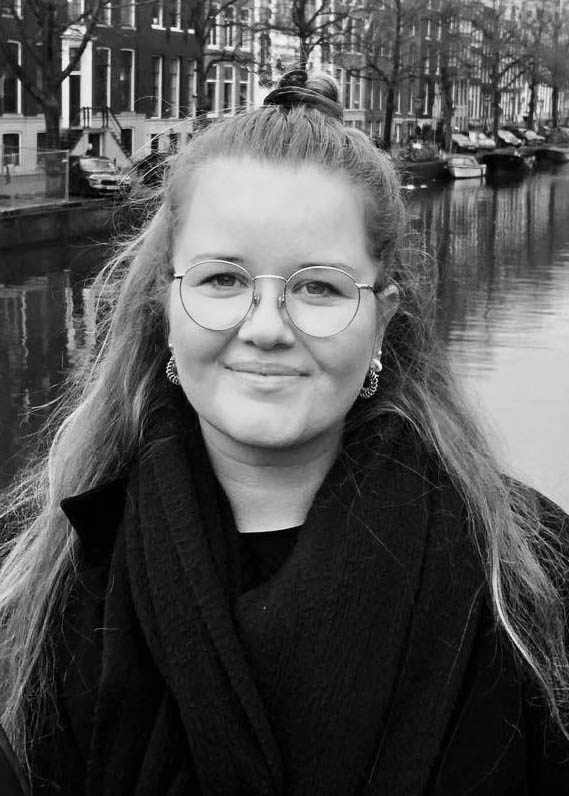
Research Topic: Roman and Hellenistic ceramics; networks
Marie-Louise was awarded with one of the two PlaCe short-term fellowships at the Cyprus Institute in spring 2024. She is a PhD fellow on the project Life at the Furnace: Copper smelting ecosystems in the north-western Troodos (LAF) granted by the Carlsberg Foundation. Her project studies ceramics from Soli excavated by the Swedish Cyprus Expedition in 1927 and 1930-1 stored at Medelhavsmuseet, Stockholm.
Marie-Louise received her MA in Classical Archaeology from the University of Copenhagen in 2020. She has since worked as a technical drawer and with studying material from excavations in Greece. In autumn 2023, she taught a course on ceramology at the Master’s Program for Classical Archaeology at the University of Copenhagen. Besides her own project, Marie-Louise contributes to the publication of the pottery from the Roman bath in Kition. Furthermore, she is head of the find processing in LAF. Her PhD-project with the initial working title Soli, a gateway community focuses on reintroducing Soli as a trading centre in Cyprus. In the last thirty years, several large-scale projects, such as the Sydney Cyprus Survey Project and the Troodos Archaeological and Environmental Survey Project, have contributed with knowledge of the copper-producing hinterlands of the northern Troodos. The invasion in 1974 prevented the natural and cultural extension of projects to the coast. With her project, she aims to provide insight into the connections between Soli, the hinterland and other central locations in and around Cyprus during the Roman period through studies of ceramics. She aims to create a typology in order to establish a more precise chronology for specific locally produced types by studying the coarse and cooking wares in their respective context. Previous research has tried to locate a local production of ceramics in Soli and extensive petrographic analyses of ceramics from Soli will greatly contribute to this discussion. The PlaCe short-term fellowship allows for such discussions of provenance, trade, and technological development.
Host organisation: STARC, The Cyprus Institute - PhD enrolment: University of Copenhagen
Curicculum Vitae E-mail: This email address is being protected from spambots. You need JavaScript enabled to view it. Profiles: N/A
ESR04 - Christiana Kelepeshi
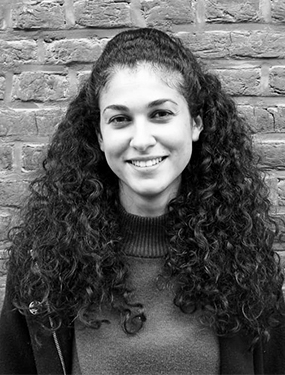
Research topic: Shifting intra- and inter-regional foci of artisanal ceramic production in the region of Sagalassos (SW Turkey) from the Archaic to Byzantine period
Christiana received a Bachelor’s degree in History and Archaeology with specialisation in Archaeology from the University of Cyprus (2015-2019) and an MSc in Archaeological Science from the University of Oxford (2019-2020). Her PhD project focuses on the application of archaeometric analyses (thin-section petrography and geochemical characterisation) for the study of tableware production at the archaeological site of Sagalassos in southwest Turkey (Sagalassos Archaeological Research Project). The aim of this project is to develop a better understanding of intra-regional patterns of ceramic exchange in the wider geographical area, e.g. in relation to Seleucia Sidera and Perge, and to reconstruct the ceramic production organisation and craft technology at Sagalassos in the long-term, from Archaic until Byzantine times.
The conceptual framework of ceramic koine will be used to illustrate the distinct characteristics of the local ceramic repertoire which at the same time formed part of a larger shared ceramic vocabulary. Following this diachronic approach, it will be possible to examine Sagalassos Red Slip Ware (SRSW) in relation to the pre-existing ceramic tradition in the region and investigate the mechanisms behind the emergence and development of SRSW through time.A total of 180 samples of tableware from the site were selected for the purposes of this project.
The samples are dated to different chronological phases of the site’s occupational history in order to provide a diachronic perspective of ceramic production in the region of Sagalassos. All samples were described macroscopically in terms of their ceramic fabric and slip characteristics, and thin sections were made for their petrographic study which is currently ongoing. All samples are also geochemically characterised using Inductively Coupled Plasma Optical Emission Spectroscopy (ICP-OES) and Mass Spectrometry (ICP-MS). Finally, in the next months a selection of representative samples will be made which will be analysed using Scanning Electron Microscopy with Energy Dispersive X-Ray Spectroscopy (SEM-EDS) to characterize their slip compositions.
Host organisation: Katholieke Universiteit Leuven - PhD enrolment: Katholieke Universiteit Leuven
Curriculum Vitae E-mail: This email address is being protected from spambots. You need JavaScript enabled to view it. Profiles: KU Leuven - Academia
ESR05 - Matilde Quilici
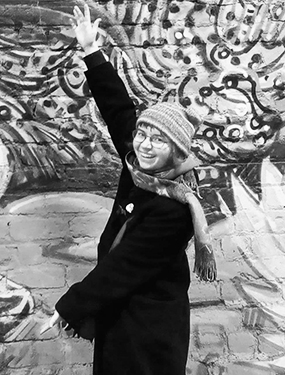
Research topic: Roman concrete throughout the empire: composition and strength
Roman architecture and construction are widely renowned because of their remarkable state of survival. Much of Roman architectural achievements can be attributed to mortars, concrete and plasters as they play an important role for the building and construction process. This PhD will explore the material properties of mortars, concrete and plasters from the archaeological site of Sagalassos by employing a range of analytical techniques (macroscopic recording, thin section analysis, SEM-EDS, mechanical testing) to provide an in-depth technological characterization. The research will examine material used for a number of purposes (walls, floors, masonry, pointing, rendering etc.) from a variety of settings (public/private and water/non-water related). The material will be dating back to the Roman Empire period (approximately end of 1st century BC-5th century AD), as mortar-making practices reached a peak at this time. Finally, the Sagalassos perspective will be compared and integrated with other selected sites across the Roman Empire, to come to a broader understanding of this practice.
Currently, Matilde has been doing literature review to familiarise herself with the Sagalassos archaeological site as well as the state-of-the-art of concrete, mortar and plaster investigations. Furthermore, she has been cataloguing and recording the available material from the site for an informative sample selection. Finally, she has attended training and HSE courses alongside seminars.
Host organisation: Katholieke Universiteit Leuven - PhD enrolment: Katholieke Universiteit Leuven
Curriculum Vitae E-mail: This email address is being protected from spambots. You need JavaScript enabled to view it. Profiles: KU Leuven
ESR06 - Sara Carrion Anaya
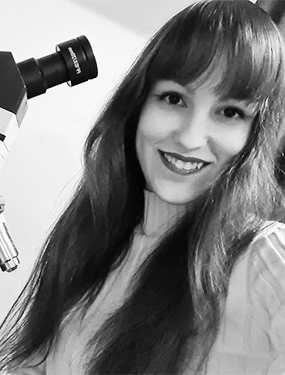
Research topic: Early Ceramic Technologies and Traditions in the Edom Lowlands Region of Southern Jordan: A Diachronic Perspective
The aim of Sara’s project is to document and study the traditions of ceramic manufacture and usage at several previously surveyed and/or excavated settlement sites dating from the Early Bronze Age III-IV to the Early Iron Age located in the Edom Lowlands Region of southern Jordan. The research will focus on characterising the chemical and mineralogical composition and determining the provenance and examining the technological steps and skills involved in the manufacture of the ceramics. The aim is to shed light onto the organisation of pottery production at a local and regional levels from a diachronic perspective. This will contribute to better understand the evolution of pottery-making traditions over time by documenting any possible changes in the composition, technological skills and distribution patterns. The observations made are also expected to address the nature of any possible trade and exchange networks with other communities from an intra-regional and extra-regional perspective by comparing the published data from that of other southern Levantine sites. The role played by pottery production in the development of copper metallurgical production and in the configuration of the so-called complex‘ societies will also be discussed by incorporating the data acquired in the present study into the theoretical debate and interpretations of the sociopolitical structure (i.e. chiefdom, early state etc…) and socioeconomic dynamics (i.e. nomadism, semi-nomadism, sedentary) of southern Levantine communities in each period, which are yet to be fully understood.
The PhD research conducted so far consisted of a literature review of the main sites, chronological periods, theoretical approaches and of the archaeological and archaeometric research carried out previously in the area. In order to deepen into the topic, Sara has attended the ARCL0151 module ‘Neolithic and early Bronze Age of the Near East: The emergence of villages and urban societies’ and the ARCL0200 module ‘Middle Bronze Age to the Iron Age in the Near East: City-States and Empires’. Sara has also started her training in LA-ICP-MS at UCL Institute of Archaeology. A first research stay at University of California – San Diego took place in May 2022 in order to sample the ceramic assemblages of the Early Bronze Age III-IV site of Khirbat Hamrat Ifdan and the Early Iron Age site of Khirbat al-Jariya. The analytical component of the project is well underway and has included so far the macroscopic study of the samples, the chemical characterisation of the ceramics (homogenised powdered samples) using pXRF and the subsequent statistical manipulation and interpretation of the geochemical data and the study of the mineralogical composition of the samples and their micromorphology using thin section petrography analysis. Sara is currently or will soon start to carry out SEM-EDS analysis at UCL Institute of Archaeology and has a second research trip planned to California (La Sierra University) for May 2023 to sample the ceramic assemblages from the Early Bronze Age site of Khirbat Faynan and the Early Iron Age site of Khirbat en-Nahas. Sara has also attended different archaeometric/archaeological conferences and has been a teaching assistant for the UCL Institute of Archaeology ARCL0046 ‘Archaeological ceramics’ module under the supervision of Dr. Patrick Quinn.
The scientific analysis is being carried out within the framework of the research conducted in the Edom Lowlands Region by the University of California – San Diego and the Department of Antiquities of Jordan since the 1990s.
Host organisation: University College London - PhD enrolment: University College London
Curriculum Vitae E-mail: This email address is being protected from spambots. You need JavaScript enabled to view it. Profiles: Profile UCL - LinkedIn - Academia
ESR07 - Archontoula Barouda
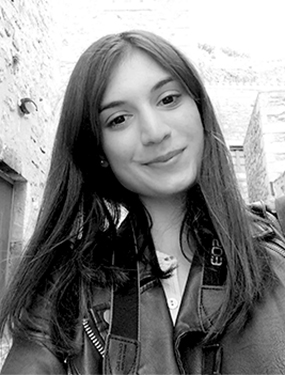
Research topic: Ceramic and Plaster Technologies and Traditions at Neolithic Makri, Thrace, Greece Ceramic
Archontoula has obtained her BA and MA degrees in Archaeology at the National and Kapodistrian University of Athens, with a specialisation in prehistoric Aegean. During her previous studies, Archontoula focused on various theoretical concepts on Aegean prehistory such as technological transfer, acculturation, integration, and assimilation, and got involved in survey and field projects in Crete, the Cyclades and Greek Mainland. In 2021 under the Onassis Foundation fund, she completed her MSc studies in Archaeological Science at the University College of London (UCL) during which she gained experience in thin-section petrography, pXRF, LA/LIBS-ICP-MS, SEM-EDS, and advanced data analysis methods for the study of the ceramic materials. Currently, Archontoula is pursuing complementary courses on the geochemical and mineralogical analysis of ceramic artefacts and applied statistical analysis employing ML methods.
Her current doctoral research project investigates the ceramic and plaster technologies and traditions at the Neolithic site of Makri in Northern Greece, the only systematically excavated Middle and Late Neolithic site in the region of Aegean Thrace and an important contact zone between Anatolia and the Balkans. By documenting the craft technology and traditions of its inhabitants, the knowledge of the environment and connections to other sites, this research aims to add to the picture of the function of the site and expand our knowledge on the human behaviour in settled agro-pastoral societies in south-eastern Europe during the 6th and 5th mil. BC. The proposed project will approach these and other questions via detailed scientific study and analysis of ceramic and plaster materials from the Neolithic settlement of Makri and contribute to setting up a developed framework for the systematic and interdisciplinary study of the most abundant materials in archaeological sites.
Host organisation: University College London - PhD enrolment: University College London
Curriculum Vitae E-mail: This email address is being protected from spambots. You need JavaScript enabled to view it. Profiles: Profile UCL - LinkedIn - Academia
ESR08 - Theodoros Vasileiou
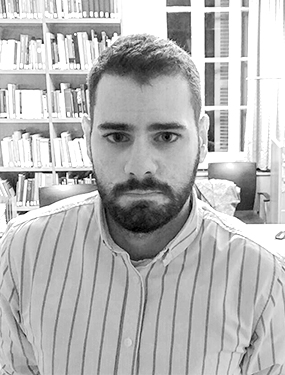
Research topic: Early Medieval Ceramic Technology and Culture in the eastern Mediterranean
Theodore’s project focuses on the early medieval pottery from the eastern Mediterranean region (7th-9th CE). The term often used in literature for this poorly known period in terms of material culture is the Byzantine Dark Ages, a term that reflects how discomforting and puzzling this period stands for researchers. Traditional research dealt with those issues through narratives of stress, conflict and invasion which beset the Empire, resulting not only in its ruralisation and degradation of living standards but, quite emphatically, in a clear division between the world of Late Antiquity and the Early Meddle Ages in the eastern Mediterranean. This study aspires to explore this transitional period principally through an object-centred approach to trace how past communities reacted to such dramatic changes. Pottery, a necessity inextricably linked with human activity, will be examined in terms of continuation, innovation and resilience instead of displacement, destruction and decline.
Theodore obtained his BA from the National and Kapodistrian University of Athens, Greece (NKUA) and his MSc from Leiden University, in the Netherlands, where he specialised in pottery analysis (TL-OM). So far, Theodore's attention is on a literature review covering the chronological period under study. He also cares for acquainting himself with the sites and regions he intends to focus in the framework of his project at the library of the Archaeological Research Unit (ARU) of the University of Cyprus. Presently, he plans to organise his sample catalogue to include an array of representative ceramic productions from a broad geographical region in the eastern Mediterranean. To secure the necessary sample permits for his research, he has already contacted and addressed the designated Archaeological Services. To better equip himself with more skills, he attends courses offered by postgraduate programmes of the Department of History and Archaeology at the University of Cyprus.
Host organisation: University of Cyprus - PhD enrolment: University of Cyprus
Curriculum Vitae E-mail: This email address is being protected from spambots. You need JavaScript enabled to view it. Profiles: Profile UCY - Academia
ESR09 - Myrto Kalofonou
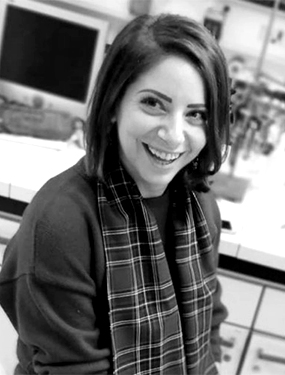
Research topic: Sampling, characterisation and reproduction of ancient composite materials from Cyprus with special emphasis on hydraulic lime plasters
Myrto is a Chemical Engineer and has graduated from the National Technical University of Athens. She holds a master’s degree from the same institute on the “Protection of Monuments”-Direction of “Materials and Conservation Interventions”.
Her research project deals with the investigation of plasters & mortars from of Cyprus, with a special emphasis on hydraulic plasters, used from the Cyprio-Classic until the Early Christian period. The main goals of the research is the understanding of evolution of technology in the production of plasters, the relation between the function of a structure (cistern, baths, production site, etc) and the type and characteristics of the composite material used in that structure and the development and implementation of mortar recipies inspired by the ancient material that could also be used as a material for the restoration of monuments (evaluation of compatibility with the ancient material). So far Myrto has concluded with the sampling and the major part of experimental analysis of archaeological material, and she is working on the design and implementation of recipes for reproduction of the ancient material.
During the last years she has presented multiple papers and posters in conferences such as: the 1st Graduate Forum for Mediterranean Archaeology (FoMArc, 2022), the 8th Symposium of Archaeometry of the Hellenic Society for Archaeometry (HSA, 2023), the 29th Annual European Archaeology Association Meeting (EAA, 2023), the 44th International Symposium on Archaeometry (ISA, 2024) and the 4th International Congress on Archaeological Sciences in the Eastern Mediterranean and the Middle East (ICAS-EMME, 2024). She was also part of the organization committee of the 1st Graduate Forum for Mediterranean Archaeology and the 22nd Postgraduate Cypriot Archaeology Meeting (PoCA 2025).
Host organisation: University of Cyprus - PhD enrolment: University of Cyprus
Curriculum Vitae E-mail: This email address is being protected from spambots. You need JavaScript enabled to view it. Profiles: Profile UCY - LinkedIn - ResearchGate
ESR10 - Milica Radovic

Research topic: From Roman to Green cement: Technological developments and social aspects
Milica’s research targets the technological evolution of mortars in the south-eastern Mediterranean area focusing on the Dodecanese islands and Crete.It is anticipated that the detailed study of traditional mortar technologies can provide valuable knowledge of the design and materials used, which if adopted in modern production, may contribute towards sustainability. Therefore, the overall objective of the research is to understand the main cultural interactions and their impact on architecture, especially on the technological development of mortars. Through comparative studies and assessment, it will be possible to trace the evolution of building techniques and technological solutions expressed in the mortars’ composition and physicochemical properties. The systematic study of mortars will provide a deeper insight into how the change of civilizations in this territory altered mortar composition, the modification of their performance properties, and the motivation behind it. To achieve successful results, an extensive set of analyses will be implemented, from the field survey to laboratory experiments.
Milica has obtained her BA and MA degrees in Architecture at the University of Belgrade. In the year 2022, she finished her Advanced Master’s studies in the field of Structural Analysis of Monuments and Historical Structures. Currently, she’s carrying out bibliographic research to get familiar with material technologies in the Eastern Mediterranean area while training in diverse techniques of Historic mortars characterization.
Host organisation: National Centre for Scientific Research “Demokritos”
Curriculum Vitae E-mail: This email address is being protected from spambots. You need JavaScript enabled to view it. Profiles: LinkedIn - Academia
ESR11 - Holly Bartlet Balicki
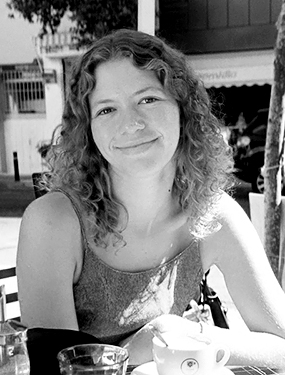
Research topic: A Diachronic Study of the Design and Technology of Attic Transport Jars
Holly's project aims to address technological choices and elements of design, through changes in component materials, their treatment and the vessel morphology of transport amphorae from Attica, Greece, from the early third millennium BCE to the 9th century CE; including a focus on ceramic production in south-western Attica. The combination of petrographic, compositional and computational analytical techniques will help to understand continuity and change in the choice and manipulation of raw materials, techniques of forming and construction, surface modification and firing. Contextualising this within a social world and taking an archaeologically and anthropologically informed approach will enable a long-term perspective on the design and technology of transport amphorae to be developed and applied.
At Demokritos, Holly has begun her training in thin section petrography, finite element analysis, experimental approaches and concepts of testing strength and toughness using 3D scanning and digital modelling of objects. Holly has started to think about the contextualisation of these maritime transport containers within the wider social world.
Host organisation: National Centre for Scientific Research “Demokritos” - PhD enrolment: University of Thessaly
Curriculum Vitae E-mail: This email address is being protected from spambots. You need JavaScript enabled to view it. Profiles: LinkedIn - Academia
ESR12 - Timothée Ogawa
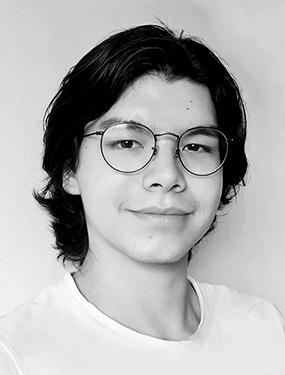
Research topic: Culinary traces of the past: Aegean-Balkan mobility and interaction at the dawn of urbanisation through an interdisciplinary study of cooking practices and pots
The project aims to develop a better understanding of everyday life in prehistoric Macedonia through the study of cooking ware during the Late Bronze Age and the Early Iron Age. Archaeological research on these periods in Macedonia, and in Northern Greece in general, lacks behind that of areas in southern Aegean, hence the organisation of everyday life is still much poorly understood. The location of the area at the interface between the Aegean World and the Balkans makes it an ideal subject for the study of cultural interaction phenomena. In that respect, the diachronic and interdisciplinary study of the life-cycle of cooking ware offers fertile soil for shedding new light on issues regarding the intra-settlement organization and inter-settlements contacts. The emphasis is put on the analysis of the production, intra-settlement distribution and consumption of cooking ware. This holistic approach thus tackles multiple themes of ceramic studies: ceramic tradition and the chaîne opératoire of cooking pots, as well as the culinary practices and foodways, and the cultural mobility and interactions between communities of different identities. To carry out this technological and functional study of cooking ware, an interdisciplinary methodology will be used, combining macroscopic examination with laboratory analyses (petrography, elemental analysis and organic residue analysis) and experimentation. The cooking pot assemblages will be primarily from the settlement of Toumba Thessalonikis, however other neighbouring sites will have to be considered in order to get a broader picture of the role, place and evolution of cooking pots in past societies of prehistoric Macedonia.
Timothée received a BA and MA in Aegean prehistory from the University of Paris 1 Panthéon-Sorbonne. Currently, he is carrying out a literature review to familiarize himself with prehistoric Macedonia, as well as the current archaeological and scientific approaches to the study of cooking ware. A trip to Thessaloniki is planned for the beginning of December for Timothée to familiarize himself with the material culture and landscape of the area (through museum visits and trips) but also to spend some time in the storerooms of the Toumba Thessalonikis excavations in order to start familiarising himself with the site’s material culture, the recording system and, most importantly, to undertake discussions with the directors and staff of the excavation and plan his study seasons.
Host organisation: British School at Athens - PhD enrolment: University of Paris 1 Panthéon-Sorbonne
Curriculum Vitae E-mail: This email address is being protected from spambots. You need JavaScript enabled to view it. Profiles: Profile BSA - Academia
ESR13 - Caterina Zaggia
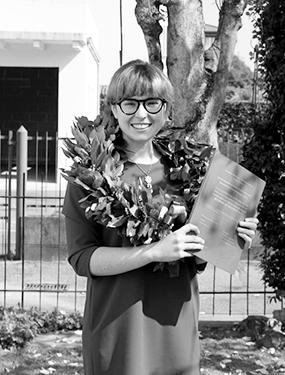
Research topic: Plaster production in Late Antiquity: materials and techniques
Caterina did her undergraduate studies at Ca’ Foscari University in Venice, in Technology for Conservation and Restoration, focusing on the chemical analysis of cultural heritage materials. She then completed her Master’s in Science for the Conservation-Restoration of Cultural Heritage at the University of Bologna. As thesis project, she used optical coherence tomography to evaluate the feasibility of a new green nanogel for the removal of damaged terpenic varnishes on easel paintings, at the Physics Department of the Nicolaus Copernicus University in Torun, Poland. Currently Caterina is a PhD student in Archaeological Science at the University of Cambridge University (UK), working under the supervision of professors Marcos Martinon-Torres and Matthew Collins at the Department of Archaeology, but also Helen Strudwick and Julie Dawson, from the Fitzwilliam Museum, who are very important points of reference.
Her project is focused on the analysis of plasters such as cartonnage and other pastes on ancient Egyptian coffins, capitalising on the collections at the Fitzwilliam Museum in Cambridge. The core aim is to chart the evolution techniques from the Old Kingdom until the Roman Period, and compare the information from coffins to that from plaster used elsewhere. The plan is to prioritize not-invasive or micro-invasive techniques such as XRF, SEM-EDS and µCT scanning.
Host organisation: University of Cambridge - PhD enrolment: University of Cambridge
Curriculum Vitae E-mail: This email address is being protected from spambots. You need JavaScript enabled to view it. Profiles: N/A
ESR14 - Ismael Rodriguez

Research topic: Container and content: integral analyses of Mediterranean amphorae
Ismael has obtained his BSc in Biotechnology from the Polytechnical University of Madrid and MSc in Bioinformatics at the University of Copenhagen, while working in medical transcriptomics. Eventually, he got involved in projects that required the application of bioinformatic skills to large datasets in palaeoproteomics. He then worked as a DNRF and Beast to Crafts Research Assistant in computational palaeoproteomics at the University of Copenhagen. Ismael's research interests lay within the field of palaeoproteomics and computational proteomics and specifically in the development of computational methods that allow authentication of ancient proteins and increase the information we can obtain from ancient protein datasets by studying protein decay processes.
His PhD project centres on the relationship between the inorganic matrix of amphorae and proteins conserved in it in the eastern Mediterranean. The main questions are how we can extract and identify those proteins, and how well preserved they are in connection with the ceramic matrix, and what this connection can tell us about ceramic production, storage, transport, and culinary practices.
Host organisation: University of Cambridge - PhD enrolment: University of Cambridge
Curriculum Vitae E-mail: This email address is being protected from spambots. You need JavaScript enabled to view it. Profiles: Profile UCAM - Academia - LinkedIn
ESR15 - Paola Pizzo
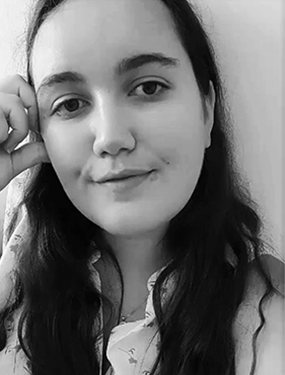
Research topic: Characterisation of binders used for premodern plasters in the ever-changing urban environments
The project aims to analyze and characterize the components of plasters employed in the Cypriot urban landscape in pre-modern times. The project will interest the geographical region of Nea Paphos, with the key archaeological sites being Kouklia-Palaepaphos and Nea Paphos. Further neighboring sites are also into account in order to have a broader overview of the architectural and constructional habits in the area. In particular, the focus is on the late phase of the EC-LC settlement of Kissonerga-Skalia, on the Classical and Hellenistic periods of Yeronisos Island, all located in the immediate vicinity of the modern town of Paphos. As to the chronology, the study spans from the beginning of the Late Bronze Age (around 1600 BCE) to the Early Roman Period (approximately II century AD). This broad chronological frame allows a holistic understanding of the evolutions in terms of plaster production.
ESR Paola Pizzo was appointed to carry out the project at the Institute of Theoretical and Applied Mechanics (ITAM). She obtained her Bachelor in Cultural Heritage (2017) and Masters in Archaeology and Ancient History (2020) from the University of Turin.
During the past year and half, Paola has familiarized herself with the archaeological sites object of investigation, refining her knowledge of the socio-cultural contexts and environment. After acquiring all the necessary permission for the study of cultural heritage materials, she begun and completed her sampling procedure over the course of 2022. She collected a total of 90 samples and holds the right to collect more, if necessary for further studies.
At ITAM, Paola has received formal training in several analytical techniques, including optical microscopy, SEM, XRD and TA. Furthermore, she also attended a short training on the extraction of organic additives and their proteomic analysis.In addition to the analytical work at ITAM, Paola has been attending the PhD seminars of Charles University, participating in the students’ debates and discussions.
Host organisation: Institute of Theoretical and Applied Mechanics of the Czech Academy of Sciences (ITAM) - PhD enrolment: Charles University
Curriculum Vitae E-mail: This email address is being protected from spambots. You need JavaScript enabled to view it. Profiles: Profile ITAM - Academia


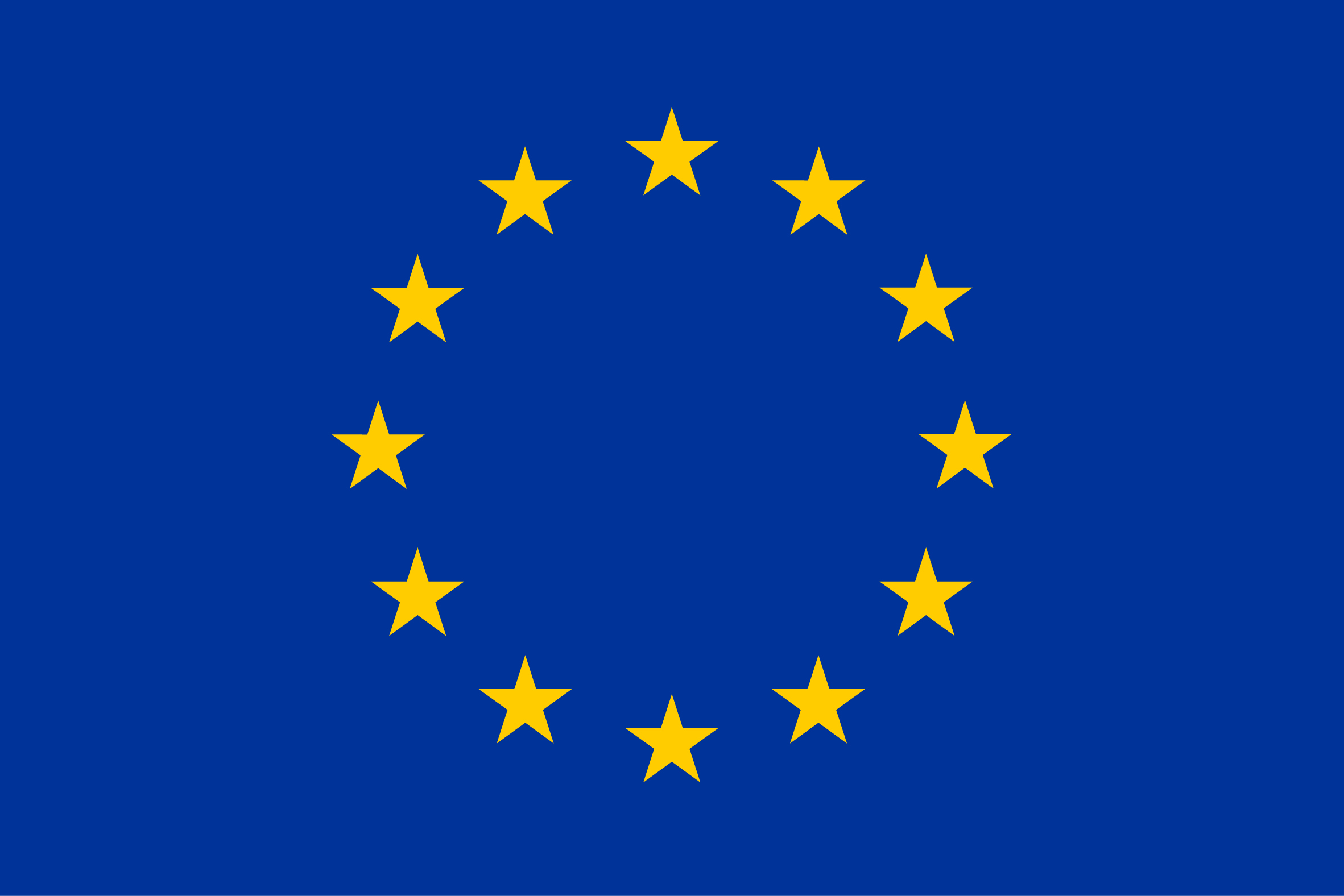
 Click
Click